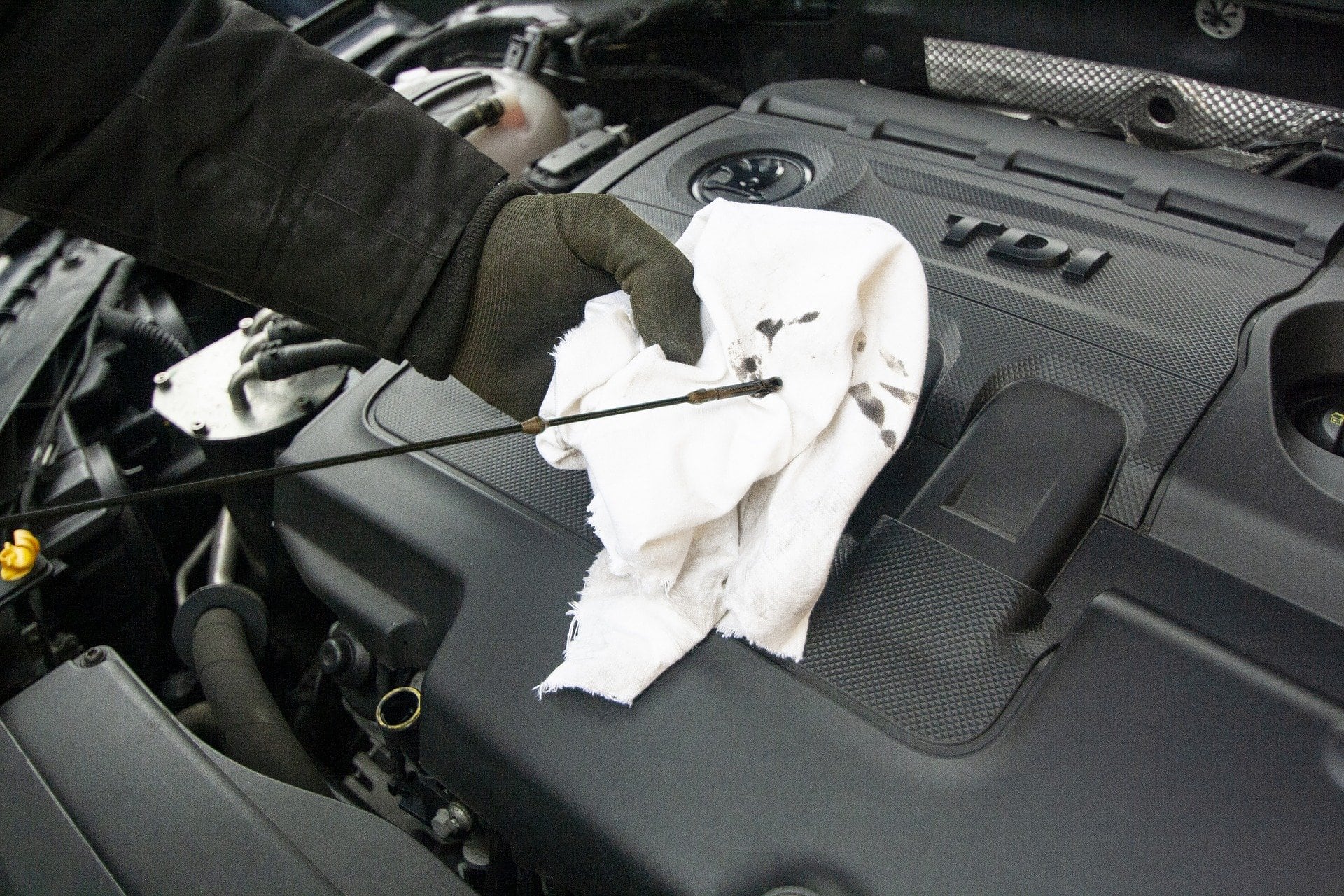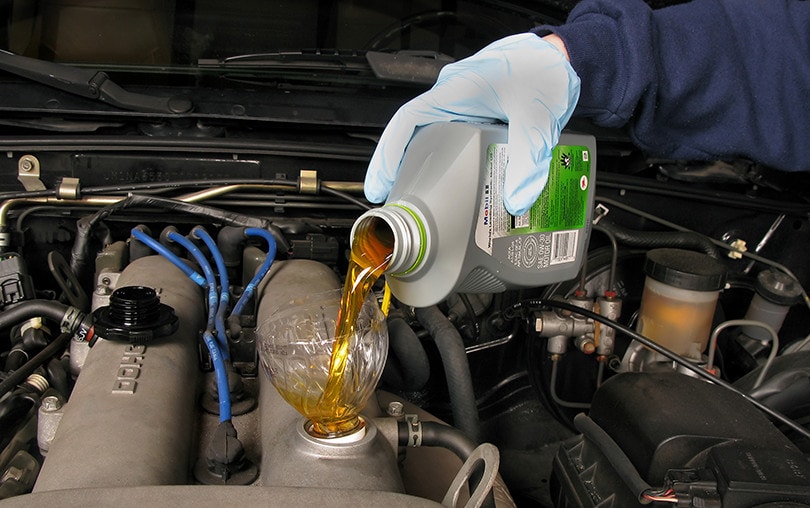How Long Can a Car Go Without an Oil Change? What You Should Know!
-
Pete Ortiz
- Last updated:

When it comes to car maintenance, replacing the oil should be your top priority to keep everything running smoothly. If the oil is not changed when it’s supposed to, you risk losing your car. Some experts say that a car can go 3,000 miles without an oil change, while others say it can go from 5,000 miles to 7,500 miles without an oil change. Some vehicles can go over 15,000 miles without having to change the oil!
There are various factors you should consider before being able to determine how long your car can run without an oil change. Keep reading to find out more about why you need to change the oil in your car and what happens if you do not change it when you are supposed to.
 Why should you change car oil?
Why should you change car oil?
There are various reasons your car needs an oil change. The oil’s primary purpose is to lubricate the engine and prevent friction and grinding damage. Over time, oil can be contaminated with dust and dirt, resulting in bad performance of your engine. Check out the list below to see why you should change the car oil when necessary.

Engine Lubrication
As we mentioned above, the primary purpose of car oil is to lubricate the engine. The engine in our cars is constantly under high temperature, pressure and stress. While it provides power, the engine components interact, creating motions and friction.
For those components to function without damage while they grind with one another, they need the lubrication that comes from car oil. The required volume of engine oil should always be in your car to give its best performance. To determine how much oil your car will need, you can check out the vehicle manufacturer’s manual, or you can find the details on their website.
Engine Temperature
Since the engine is constantly working and has continuous friction, it can easily get overheated. Having sufficient oil in the engine will prevent overheating and too much friction. The engine will be able to cool off and it will perform much better.
In the same way, not enough oil can result in your engine becoming too hot and malfunctioning.

Improved mileage
When you have an appropriately lubricated engine, your car will have reduced fuel consumption. Refilled oil in your vehicle can improve gas mileage by up to 2%, so that way, you will save money. The engine will reduce the fuel economy if you do not change the oil that’s contaminated by dust, dirt, and other foreign objects.
Less dust and sludge
While the engine is working it constantly collects sludge and dust that affect its performance. As we mentioned above, that will slow down the motor and functioning of the engine. Changing the oil will lead to less dust and sludge, improving the car’s performance while keeping it in good condition.

Expanded engine lifespan
Your vehicle will thank you if you do regular maintenance, and it will perform much better. Since your engine can function much more easily with new oil, you will extend its lifespan. When you consider all of these reasons, it’s clear that changing your oil is a necessary action that will help you and your vehicle.
Recommendation for oil changes
Oil change frequency depends on the age of your vehicle and its configurations. Some claim you should change the car oil every 1,000 miles. Honestly, that is way too often, even for older vehicles, and it’s not very good for the environment.
Most car experts now advise that you should change the oil in your car once you cross the 5,000 up to the 7,500-mile range. The oil change frequency depends on the car’s age, so a more recent vehicle will require less frequent oil changes. Changing the oil on 3,000 miles might be convenient for older cars, but new cars do not need these frequent oil changes. Older cars in worse condition will need oil replacements much more than newer cars.
Synthetic oil is much more expensive than regular oil, but it will provide more benefits to your car. Also, some vehicles function on synthetic oil. If that is the case with your vehicle, you can reduce the frequency of oil change to 10,000 up to 15,000 miles or more.

What happens if you don’t change car oil regularly?
If you do not change your car oil for a long time, you ultimately risk damaging the engine, resulting in expensive replacement costs. When an engine runs out of oil, there’s no chance for repairs, so you will always need a replacement in that situation. A dry engine will overheat quickly, and the engine parts will wear down. After a while, the engine will blow a gasket or seize up, and when you start your car, all you will hear is a clicking noise or nothing at all. That’s a clear sign that your car engine is no longer usable.
Can a car last a year without an oil change?
The short answer is no. Even if your car didn’t pass the recommended mileage for an oil change, you shouldn’t leave it one year without changing the oil. If oil sits in the engine for too long, it can go bad. After some time, it loses viscosity, and it can no longer provide proper lubrication to the engine components. That’s why you should change it at least once yearly, regardless of the mileage.

How long does it take to change the oil in a car and what’s the price?
Having your car oil changed is not a difficult task. If you take your car to a mechanic, they should be able to change your oil in about 30–45 minutes. The process consists of draining the old oil, changing the filter, and then pouring new oil into the engine.
When it comes to the price, it depends on the oil manufacturer you choose. There are inexpensive oils and there are more expensive oil types. Also, not every oil can go into every vehicle type. Conventional oil replacement can cost from $30–$75 while changing synthetic oil can cost from $65–$125.
• You might also like: How Much Does Gutter Installation Cost?
 Conclusion
Conclusion
As you can see, changing the oil in your car is the key for it to function without any problems. If you want a vehicle that performs well and runs without issues, it’s important to follow the oil-changing regulations. Determine which oil-changing mileage applies to your vehicle type, and make the oil change a regular routine.
See Also:
- Why Is My Car Overheating? 7 Possible Reasons
- Can You Use Synthetic Oil In Any Car? What You Need To Know!
Featured Image Credit: IamTimEre, Pixabay
Contents

 Why should you change car oil?
Why should you change car oil?